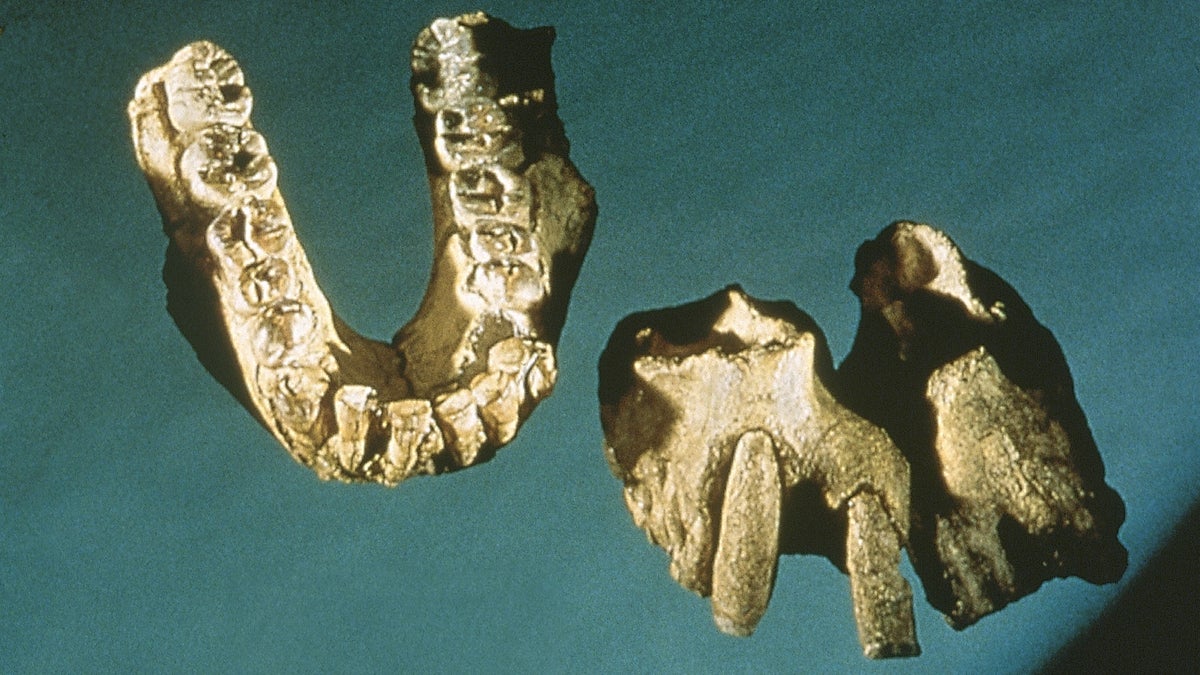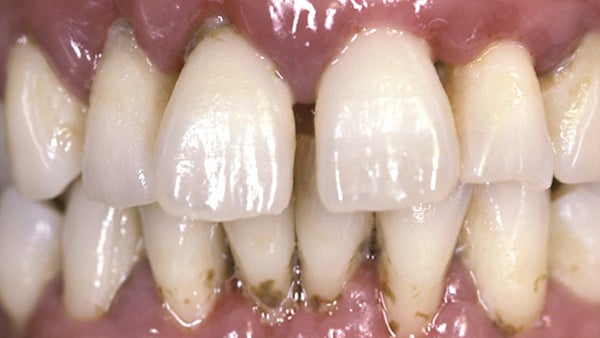Penn dentists identify protein that prevents bone loss

Patients with periodontitis, a form of gum disease, have both inflammation and bone loss. (Felix E. Guerrero/https://flic.kr/p/78VAWD)
Scientists at the University of Pennsylvania Dental School have discovered a protein that prevents a common form of gum disease and might one day help patients suffering from osteoporosis or other bone-loss diseases.
Nearly half of Americans have periodontitis, a type of gum disease that includes inflammation and bone loss in the sockets surrounding the teeth. In extreme cases, patients lose teeth and must wear dentures because the supportive bone in the jaw rots away.
 Patients with periodontitis, a form of gum disease, have both inflammation and bone loss. (Image courtesy of Penn Dental Medicine)
Patients with periodontitis, a form of gum disease, have both inflammation and bone loss. (Image courtesy of Penn Dental Medicine)
Research published this week in the journal Science Translational Medicine suggests a naturally occurring protein, Del-1, can fight the disease.
Penn immunologist George Hajishengallis first became interested in the protein four years ago, when he noticed levels were lower in older people, who are more susceptible to periodontitis.
He was startled to find Del-1 limited inflammation in the gums by blocking the entry of immune cells. Remarkably, in early lab experiments, the protein seemed to work even better than an existing inhibitor.
“Del-1 was much better than this drug in inhibiting inflammatory bone loss,” he said, “so we started suspecting that maybe Del-1 is doing something more.”
The team has now found that the protein also acts directly on the cells that reabsorb bone.
For periodontitis, that’s a one-two punch. In an experiment with monkeys, an injection of the protein successfully prevented the gum disease.
More tests are needed before Del-1 hits the clinic, but Hajishengallis is optimistic.
“I am really convinced this can work in humans because the protein we gave to the non-human primates is actually the human version,” he said.
The protein already exists in the body, so it’s unlikely to pose significant safety risks.
But it’s the ability to stop bone loss that has Hajishengallis thinking beyond teeth. Because Del-1 is likely to act on other bones in the body, he said the protein could prove to be a useful treatment for osteoporosis and rheumatoid arthritis.
“This is something that makes us feel very good,” said Hajishengallis. “In this case I think dentistry can contribute to therapeutic approaches for other diseases that are systemic and don’t have anything to do with dental diseases.”
WHYY is your source for fact-based, in-depth journalism and information. As a nonprofit organization, we rely on financial support from readers like you. Please give today.

